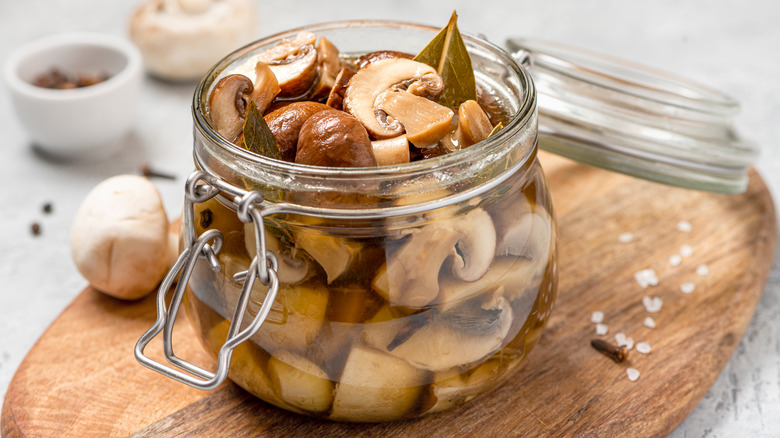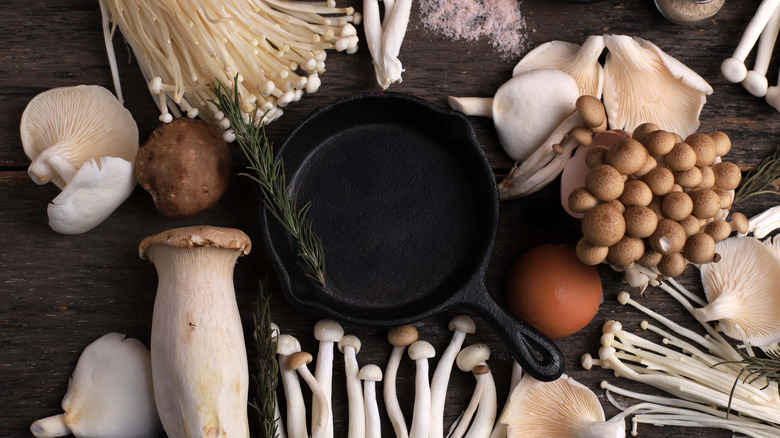Why You Should Be Careful When Marinating Mushrooms
As rich soil grows dark with morning dew, oak leaves carpet the forest floors, and the skies fill with rain clouds, some adventurous souls will don beanies, vests, and hiking boots in order to venture out into the woods for mushrooms. There are two mushroom harvesting seasons: spring and fall (per the U.S. Department of Agriculture). While both spring and fall season mushrooms are enjoyable, one succulent springtime mushroom dish can be made with black trumpet mushroom. Be sure to keep an eye out for this type in the late summer, particularly during August and September.
If you are as obsessed with mushrooms as we are, you are probably already planning out your shiitake soup, mushroom stroganoff, or mushroom frittatas recipes, and to do that you'll want to season them up a bit. But before you plop those mushrooms into a marinade, it's important to remember that mushrooms aren't technical vegetables, they are fungi.
Remember, mushrooms are not vegetables
Though we often consider mushrooms as vegetables for the sake of simplicity in the kitchen, they can't be marinated as long as other veggies. According to Mushroom Appreciation, mushrooms are extremely porous and usually have holes under their caps, which lead to tubes within the fungi. These pores allow the mushroom to dispel spores when it's in the ground, but after it has been harvested, the pores allow for seasoning, especially when marinated. However, Serious Eats advises against marinating mushrooms for over 30 minutes, or else they will become too juicy.
The best part about marinating your mushrooms is that they are already wonderfully flavorful so you just need to highlight that natural flavor. No Spoon Necessary suggests making a simple marinade of olive oil, vinegar, garlic, shallots, and a mix of your favorite herbs along with some Italian seasoning to bring some acidity to the dish and flavor to complement the earthy qualities of the mushrooms.

